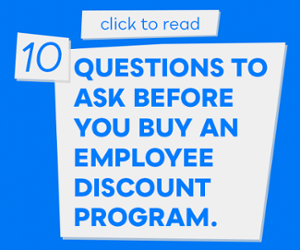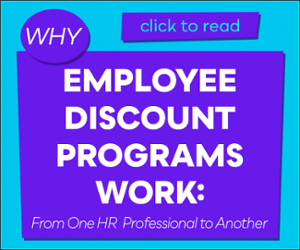Humans are funny creatures.
We wouldn't work if we weren't paid.
But when we get into jobs, it isn't money that motivates us and keeps us dialed in.
A recent experiment by Dan Ariely at Duke University showed that incentives and recognition are just as significant motivating factors as cash in employee performance.
Three groups were promised incentives for meeting certain milestones. One was offered $30 in cash, another pizza, and a third would receive an encouraging text from their boss. A fourth group was offered nothing.
Oddly, the pizza group was the most productive, followed closely by the boss encouragement group. Taking third, by a noticeable margin, was the money group.
A pizza party and nice words are more important than cash? What is this, elementary school?
BambooHR conducted their own research recently, and discovered similar findings.
Nearly one-third of employees would rather be recognized in a company-wide email from an executive than receive a bonus of $500
As it turns out, people work for money, but they excel for gratitude.
Paging Dr. Maslow
 If you want to play amateur psychologist, we can look at Maslow's Hierarchy of Needs.
If you want to play amateur psychologist, we can look at Maslow's Hierarchy of Needs.
A steady job with fair pay is a major step to securing the two base levels of the hierarchy - food, shelter, income, property, safety, etc.
With most of those locked down, people can start looking up. To love and family, but also to accomplishment, climbing the social and corporate ladders, and acceptance.
At some point, those things become more important to us, whether we consciously know it or not.
A big part of what makes people happy is recognition. A superior acknowledging a job well done, and maybe some sort of small prize.
But what's up with the pizza, though?
Look at it this way.
We're already paid money to do our jobs, and $30 is likely a small amount to most employees.
Pizza, on the other hand, means a break from company norms, a party, a chance to celebrate with coworkers for an hour or so. If other departments see us enjoying our pizza while they toil, then that's even better!
Don't Let An Incentive Fill in for a Leader
Incentives have their place in the office. Used wisely, they can motivate people to go above and beyond, or serve as a nice surprise for a job well done.
But don't let them be a substitute for real, genuine gratitude.
Encourage managers to be aware of the efforts their own people are putting in. Make sure they're identifying and recognizing strengths.
Engagement plummets to 2% among teams with managers who ignore their employees, compared 61% for teams led by managers who focus on strengths (Gallup)
(If you're interested in more stats about what motivates and drives employee engagement, check out our statistics page here)
And not just general niceties. Encourage specific, individual compliments. Let employees know you're paying attention.
This doesn't just apply to direct managers, though. Make sure the top level executives are aware of the efforts employees are putting in, and encourage them to stop by and say thanks.
It's a small gesture, but it scratches a deep, difficult itch each of us has - to feel important, accomplished, like we're truly making a difference.
Saying thanks is a really simple thing to do. But, much like customer-centricity, recognition and gratitude must be built into your culture. From the top down, people need to know when they've done well.
And if you want to order a bunch of pizzas and take over a conference room while you say thanks, then that’s even better.
(Maslow chart courtesy of http://www.timvandevall.com/)




